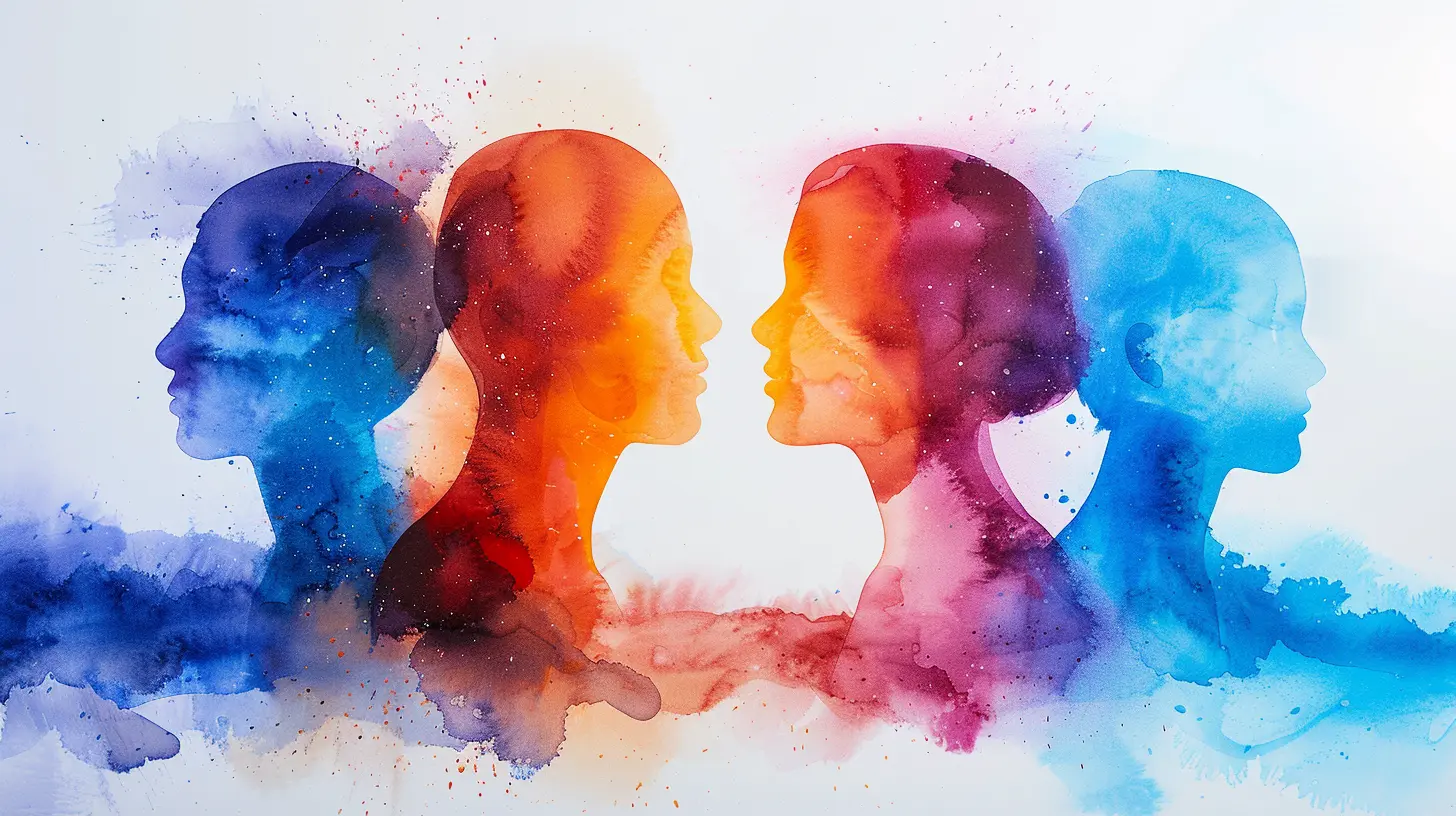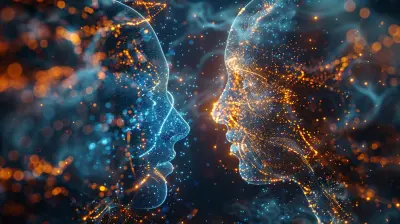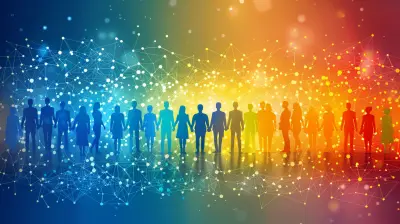The Impact of Social Exclusion on Mental Health
28 December 2024
Ever had a time when you felt left out? Maybe your friends didn’t invite you to a party, or perhaps you were excluded from a group chat. It stings, doesn’t it? That feeling of being left out or ignored can hit deep. But while it may seem like just a fleeting moment of rejection, social exclusion can have long-lasting and harmful effects on our mental health.
In today’s world, where social interactions have extended to both face-to-face encounters and virtual spaces, the effects of being excluded can be even more pronounced. But how exactly does social exclusion impact mental health? And why does it hurt so much? Let's dive into the psychology of exclusion and its ripple effects on our mental well-being.

What is Social Exclusion?
Before we get into the nitty-gritty, let’s get clear on what social exclusion actually means. Social exclusion is when someone is deliberately left out or ostracized from a group or activity. This can happen in various forms—at work, in friendships, within families, or even in online communities. It could be something obvious, like not being invited to a meeting at work, or more subtle, like being ignored in a conversation.And it doesn't just stop at "feeling left out." The psychological consequences of exclusion can be profound, leaving scars that run much deeper than we often realize.

Why Does Social Exclusion Hurt So Much?
You might wonder, why does exclusion feel so gut-wrenching? Shouldn't we be able to just brush it off and move on?Well, it turns out that the pain of exclusion isn't all in your head (well, it sort of is, but not in the way you think). Research shows that social rejection activates the same neural pathways in the brain that physical pain does. Yes, you read that right—being excluded can hurt just as much as stubbing your toe or burning your hand.
This makes sense if we think about it from an evolutionary perspective. Our ancestors survived by being part of a group. Being excluded could have meant life or death. So, our brains are wired to feel the sting of social rejection because, historically, it was a threat to our survival.

The Psychological Toll of Social Exclusion
The emotional pain of social exclusion can trigger a cascade of psychological effects. Let’s break down how this can affect your mental health.1. Increased Anxiety and Depression
Social exclusion often leads to feelings of worthlessness and sadness. When you're constantly left out, it's easy to start questioning your value and self-worth. Am I not good enough? Did I do something wrong? These questions can spiral into more serious mental health issues, like anxiety and depression.In fact, studies have shown a strong link between social exclusion and depressive symptoms. People who experience chronic exclusion are more likely to feel hopeless, experience low energy, and struggle with persistent sadness. And the worst part? It becomes a vicious cycle. The more excluded you feel, the more anxious or depressed you become, which in turn makes it harder to connect with others, leading to—you guessed it—more exclusion.
2. Loneliness and Isolation
Social exclusion can make you feel lonely, even when you're surrounded by people. You may be physically present, but emotionally, you feel invisible. This sense of disconnection can be incredibly isolating, leading to chronic loneliness.Loneliness is more than just a state of mind—it has real consequences for your health. Research shows that chronic loneliness can increase the risk of heart disease, stroke, and even early death. It's often said that loneliness can be as harmful as smoking 15 cigarettes a day. That's a pretty powerful analogy, right?
3. Lowered Self-Esteem
Repeated experiences of exclusion can take a serious toll on your self-esteem. When others repeatedly reject you, it’s easy to internalize the message that you're not good enough or that there’s something inherently wrong with you. Over time, this can lead to a negative self-image, making it even harder to form meaningful connections with others.Low self-esteem also impacts your ability to cope with challenges. When you don't believe in yourself, you're less likely to take risks, try new things, or pursue your goals. It’s like being trapped in a bubble of self-doubt.
4. Anger and Aggression
While some people internalize the pain of exclusion, others may externalize it. Social exclusion can lead to feelings of anger and frustration, which, if not addressed, can manifest in aggressive behaviors.Think of it as a boiling pot—when the pressure builds up, it eventually has to release. For some, that release comes in the form of lashing out at others, whether verbally or physically. This aggression can further alienate the person, creating a self-fulfilling prophecy of exclusion and isolation.
5. Cognitive Decline
Here's something you might not expect—social exclusion can actually impact your brain's ability to function. Studies have found that people who experience chronic exclusion may have difficulty with cognitive tasks, such as problem-solving, memory, and attention.Why? Because exclusion puts your brain in a constant state of stress. When you're stressed out all the time, your brain has a harder time focusing on anything other than the perceived threat. In this case, the threat is social rejection.

The Role of Social Media in Modern-Day Exclusion
Ah, social media. We’ve all been there—scrolling through Instagram or Facebook, only to see that our friends went out and didn’t invite us. Or maybe you’ve sent a message in a group chat only to be met with radio silence. It’s like modern-day exclusion on steroids.Social media has made it easier than ever to feel excluded, even when we're supposedly more "connected" than ever before. The constant stream of updates, likes, and comments can make us hyper-aware of our social standing. And when we're left out, it can feel like the whole world is watching.
But here's the kicker—social media exclusion can have the same psychological impact as real-life exclusion. Whether it’s being unfollowed, ignored in a comment thread, or left out of a virtual event, the emotional pain is very real.
How to Cope with Social Exclusion
If you've ever been on the receiving end of exclusion, you know it can be tough to bounce back. But the good news is that there are ways to cope and protect your mental health. Here are some strategies to keep in mind:1. Acknowledge Your Feelings
First things first—acknowledge that it’s okay to feel hurt. Don’t beat yourself up for feeling rejected. It’s a natural human response. The key is to not let those feelings fester and take over your life.2. Reach Out to Supportive People
While you may feel like isolating yourself after being excluded, it's important to lean on the people who do value you. Reach out to supportive friends or family members who can offer comfort and remind you of your worth.3. Challenge Negative Thoughts
It’s easy to fall into the trap of thinking, "I’m not good enough," or "No one likes me." But remember, exclusion is often more about the other person or group than it is about you. Challenge those negative thoughts by reminding yourself of your strengths and accomplishments.4. Engage in Self-Care
Taking care of your mental and physical health is crucial when dealing with exclusion. Whether it’s exercising, practicing mindfulness, or engaging in a hobby you love, self-care can help reduce the impact of social rejection.5. Seek Professional Help
If social exclusion is significantly affecting your mental health, it might be time to seek professional help. A therapist can help you work through your feelings and develop healthier coping mechanisms.
The Importance of Inclusion
We all have a role to play in creating a more inclusive society. Whether it’s at school, work, or in social circles, making an effort to include others can have a profound impact on their mental health and well-being. Remember, a simple act of inclusion can make someone feel valued and seen.Inclusion isn't just about inviting someone to the party—it’s about making them feel like they belong, whether it’s in a conversation, a team, or a community. And when we foster a sense of belonging, we help to break the cycle of exclusion and its harmful effects.
Conclusion
Social exclusion can have a devastating impact on our mental health, leading to feelings of loneliness, anxiety, depression, and even physical health problems. But by understanding the psychological toll of exclusion and taking steps to cope, we can protect our mental well-being.At the end of the day, we all want to feel like we belong. So, the next time you notice someone being left out, consider extending a hand. You never know how much that small act of inclusion could mean to them.
all images in this post were generated using AI tools
Category:
Social PsychologyAuthor:

Jenna Richardson
Discussion
rate this article
11 comments
Eliana McInnes
This article provides valuable insights into the profound effects of social exclusion on mental health. It highlights the need for awareness and understanding of these issues. Perhaps including practical strategies for individuals to combat feelings of exclusion and foster connections could enhance the discussion and provide readers with actionable takeaways.
February 1, 2025 at 4:19 AM

Jenna Richardson
Thank you for your thoughtful feedback! I appreciate your suggestion and will consider incorporating practical strategies in future discussions to enhance the article.
Kingston Torres
Social exclusion casts long shadows on the mind, weaving a silent web of despair. What hidden scars linger beneath the surface? As we unravel the intricate dance between isolation and mental health, can we truly comprehend the depths of our collective loneliness?
January 28, 2025 at 4:48 PM

Jenna Richardson
Thank you for your thoughtful comment. Indeed, social exclusion leaves deep emotional wounds that often go unseen, profoundly affecting mental health and highlighting the urgent need for understanding and compassion in addressing our collective loneliness.
Lincoln McDonald
Thank you for shedding light on such an important topic! Understanding the impact of social exclusion on mental health is crucial for fostering empathy and support within our communities. Your insights encourage us to be more inclusive and proactive in addressing these challenges. Keep up the great work!
January 23, 2025 at 4:05 PM

Jenna Richardson
Thank you for your kind words! I'm glad to hear that the article resonated with you and inspires a commitment to inclusivity.
Lisette Blevins
Social exclusion: the only club where no one wants to be a member—membership is painful!
January 19, 2025 at 5:04 AM

Jenna Richardson
Thank you for your comment! Indeed, social exclusion can profoundly impact mental health, highlighting the importance of fostering inclusive communities.
Leah McTier
Social exclusion devastates minds; we must address it.
January 13, 2025 at 5:21 AM

Jenna Richardson
Absolutely agree! Addressing social exclusion is crucial for improving mental health and fostering inclusive communities.
Zeth Brooks
This article effectively highlights how social exclusion can profoundly affect mental health, emphasizing the need for awareness and supportive measures in our communities.
January 2, 2025 at 5:19 AM

Jenna Richardson
Thank you for your insightful comment! I'm glad the article resonated with you and underscored the importance of addressing social exclusion for better mental health.
Ella McIntosh
This article powerfully highlights the profound effects of social exclusion on mental health. It’s crucial to remember that connection and community are vital for our well-being. By fostering inclusivity and understanding, we can create supportive environments that heal and uplift those who feel marginalized. Thank you for shedding light on this important issue!
December 30, 2024 at 4:14 PM

Jenna Richardson
Thank you for your thoughtful comment! I'm glad the article resonated with you. Promoting inclusivity is indeed essential for mental well-being.
Colette McKinnon
Insightful article! Social connections are vital for well-being.
December 30, 2024 at 3:28 AM

Jenna Richardson
Thank you! I'm glad you found it insightful. Social connections play a crucial role in mental health, and it's important to recognize their impact.
Caden McKinnon
Thank you for shedding light on such an important topic. Social exclusion truly affects mental health in profound ways. Your insights remind us of the need for compassion and connection in our communities.
December 29, 2024 at 3:41 PM

Jenna Richardson
Thank you for your thoughtful comment! I'm glad you found the article insightful. Compassion and connection are indeed vital in addressing social exclusion and its effects on mental health.
Mindy McMeekin
Oh sure, let’s just ignore the whole “social exclusion” thing. Who needs friends and support when you can embrace a delightful sense of isolation instead? Nothing says “optimal mental health” like sitting alone with your thoughts. Sounds like a great plan!
December 28, 2024 at 5:28 PM

Jenna Richardson
You're right to highlight the importance of social connections; isolation can harm mental health. The article aims to raise awareness about these issues and promote support systems. Thank you for your insightful comment!
Isaac Lamb
This article effectively highlights the profound effects of social exclusion on mental health, emphasizing the need for societal awareness and supportive interventions to foster inclusion and well-being. Great read!
December 28, 2024 at 3:53 AM

Jenna Richardson
Thank you for your thoughtful feedback! I'm glad you found the article impactful in addressing such an important issue.
MORE POSTS

Understanding the Differences Between Depression and Grief

The Role of Peer Pressure in Adolescent Substance Use

The Impact of Mirror Neurons on Social Behavior

How Emotional Support Can Ease the Challenges of Parenting

Are You Burned Out or Just Stressed? How to Tell the Difference

The Role of Gratitude in Promoting Mental Wellness

The Role of Collective Effervescence in Strengthening Social Bonds

How to Use Behavioral Psychology to Build Better Relationships